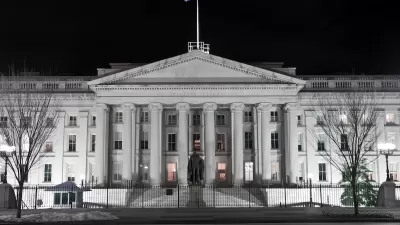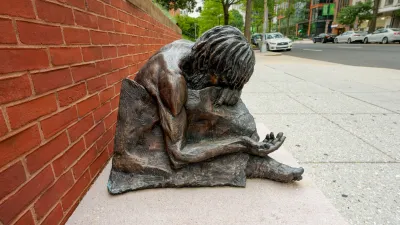The National Low Income Housing Coalition issued a statement charging that Trump’s executive orders would worsen the housing crisis.

The National Low Income Housing Coalition (NLIHC) issued a statement outlining the potential impacts of President Trump’s recent executive orders on affordable housing. According to NLICH, the actions, if implemented, “would make it harder for our nation to ensure that everyone has access to an affordable, accessible place to call home.”
The Coalition argues that the executive orders would undermine efforts to ensure fairness and equity in housing, weaken the Department of Housing and Urban Development’s capacity, put marginalized people at greater risk, undermine state and local efforts to reduce homelessness, and ultimately harm people at a time when over 10 million American households are “severely rent-burdened,” spending more than half their income on housing.
As the statement notes, HUD is an already underresourced agency. “An executive action instituting a hiring freeze will prevent HUD from hiring essential staff and slow down the agency’s ability to help states and communities address their most pressing housing needs.” Meanwhile, efforts to end DEI programs and target undocumented immigrants could be used to deny funding to organizations that offer shelter and services, undermining their missions.
FULL STORY: Impacts of Trump Administration Executive Orders

Trump Administration Could Effectively End Housing Voucher Program
Federal officials are eyeing major cuts to the Section 8 program that helps millions of low-income households pay rent.

Planetizen Federal Action Tracker
A weekly monitor of how Trump’s orders and actions are impacting planners and planning in America.

The 120 Year Old Tiny Home Villages That Sheltered San Francisco’s Earthquake Refugees
More than a century ago, San Francisco mobilized to house thousands of residents displaced by the 1906 earthquake. Could their strategy offer a model for the present?

HSR Reaches Key Settlement in Northern California City
The state’s high-speed rail authority reached an agreement with Millbrae, a key city on the train’s proposed route to San Francisco.

Washington State Legislature Passes Parking Reform Bill
A bill that would limit parking requirements for new developments is headed to the governor’s desk.

Missouri Law Would Ban Protections for Housing Voucher Users
A state law seeks to overturn source-of-income discrimination bans passed by several Missouri cities.
Urban Design for Planners 1: Software Tools
This six-course series explores essential urban design concepts using open source software and equips planners with the tools they need to participate fully in the urban design process.
Planning for Universal Design
Learn the tools for implementing Universal Design in planning regulations.
Ada County Highway District
Clanton & Associates, Inc.
Jessamine County Fiscal Court
Institute for Housing and Urban Development Studies (IHS)
City of Grandview
Harvard GSD Executive Education
Toledo-Lucas County Plan Commissions
Salt Lake City
NYU Wagner Graduate School of Public Service




























